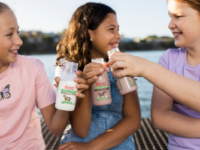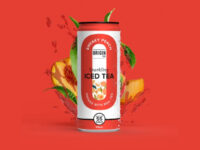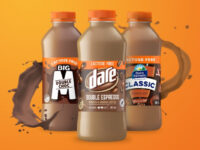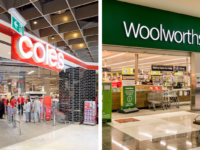 We all know private labels are now brands in their own right and are providing plenty to worry about for our household big brand names. They make up 21 per cent of the shopping basket with sales of brands such as Woolworths Macro and Select, Coles’ Finest and Aldi’s exclusive brands growing by 6.6 per cent in 2014 in comparison to 2.4 per cent growth in total grocery sales.
We all know private labels are now brands in their own right and are providing plenty to worry about for our household big brand names. They make up 21 per cent of the shopping basket with sales of brands such as Woolworths Macro and Select, Coles’ Finest and Aldi’s exclusive brands growing by 6.6 per cent in 2014 in comparison to 2.4 per cent growth in total grocery sales.
Using the private label models of overseas giants such as Tesco and Waitrose, Coles and Woolworths are taking on established brands – catering to consumer needs through:
- Celebrity collaborations: Big names such as Jamie Oliver, Heston Blumenthal and Michelle Bridges help to create ‘exclusive brands’ and add credibility to ease of shop solutions, particularly in fresh food categories.
- Innovation: The retailers are investing in private label, creating unique quality products which differentiates them from their competitors and providing consumers with a reason to choose a particular retailer
- Premiumisation: 26 per cent of private label shoppers are trading up within private label to get benefits and quality they don’t believe they are getting from brands, eg Macro brands or Coles Finest
- Value for money: Private label’s ability to offer the same product or very similar for less is irresistible for consumers
- Tiered brands: Offering tiers of product quality (through different private label brands) within the same category to attract different consumer segments to store.
Add this to the advantage private label has in garnering shelf space and it’s all great news for the retail giants, who are reaping the financial rewards on the increased margin they make from their own product. But what does it mean for the brands we all know, love and work with?
Well, it’s not all doom and gloom. There are traits that established brands have earned over time that private label, with their price drives and celeb tie-ins, simply can’t manufacture. Specifically,brand love, loyalty and trust.
Whether it’s through heritage, quality, personality or tone of voice, the brands that are astute enough to leverage these traits with shoppers will always remain top of mind over their private label contemporaries.
For example – I’m sure a lot of you, like me, were wondering why the hell a Two Michelin Star chef was selling Coles snags. Rather than lifting the quality of the private label, it felt like Heston was selling out. A brand with strong quality credentials on the other hand could pull off a similar celebrity tie in without it feeling contrived or a cash grab.
Brand advantage
Brands also have an advantage in communicating to their audience. Sure, private label has the supermarket giants behind them, but it also means that they communicate to shoppers through rigidly defined channels. They also have a huge array of categories within these private label brands to communicate through the same streams, which means the message can get lost in the clutter. This allows brands to be far more focused, innovative, nimble and interesting with the way they connect and interact with shoppers over and above catalogue and Woollies/Coles online banner ads.
Lastly, depending on who you believe on the internet, it was either Sun Tzu, Machiavelli, or Michael Corleone, who said, “keep your friends close, but your enemies closer”. It’s a bit of an exaggeration for what we’re discussing here (we all love Coles and Woolies, don’t we?), but the sentiment holds true. Brands that endeavor to work with Coles and Woolworths will find better access to visibility, off location and shelf space instore in return.
By tapping into the supermarket’s key promotional pillars or assisting in innovation of their consumer touchpoints, not only will your marketing dollar go further, you’ll also have more scope to be innovative with your POS and communication, which leads to stronger connections with shoppers and sales as a result. You could even partner or cross promote with private label brands and lift sales for the category as a whole. Everybody wins.
So, private label is not the death of the brand. Far from it. In fact, it’s an opportunity to strengthen the bond with the shopper for those brands that embrace the challenge and believe in their product.
Libby Waring, Account Director at 31ST:SECOND, Australia’s brand participation agency – www.31stSecond.com.au










